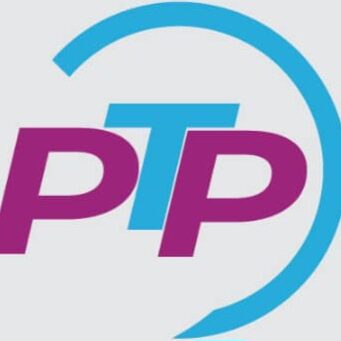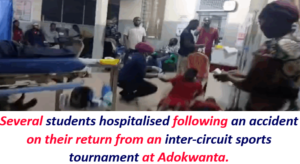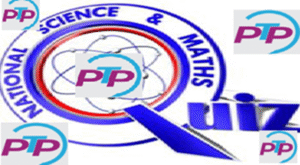Fully Funded UNOOSA/Japan Fellowship 2026 Opportunity for Nano-Satellite Technologies

Fully Funded UNOOSA/Japan Fellowship 2026 Opportunity for Nano-Satellite Technologies.
The United Nations Office for Outer Space Affairs (UNOOSA), in partnership with the Government of Japan and the Kyushu Institute of Technology (Kyutech), invites applications for the 2026 UNOOSA/Japan Long-term Fellowship Programme on Nano-Satellite Technologies.
Commonly known as the “post-graduate study on Nano-Satellite Technologies (PNST),”
This flagship initiative equips talented researchers from developing countries and non-space-faring nations with rigorous academic training and hands-on experience in small satellite design, testing, and mission development.
For talented engineers and applied scientists from developing countries, the UNOOSA/Japan Long-term Fellowship Programme 2026 is a remarkable springboard into the global space sector.
Beyond funding, it offers deep technical training, mission-grade laboratory experience, and a powerful network, exactly what’s needed to seed national nano-satellite initiatives, strengthen universities and labs back home, and translate space technology into societal benefits (from disaster monitoring to precision agriculture and connectivity
- Application deadline: 30 November 2025, 23:59 Japan Standard Time (JST)
- Up to three Master’s (2 years) and three Doctoral (3 years) fellows
- The awarding institution is Kyushu Institute of Technology (Kyutech), Japan
- Master’s or Doctoral degree upon successful thesis defense and programme completion
This programme advances UNOOSA’s mandate to foster inclusive participation in the peaceful uses of outer space, while enabling home-country impact through technology transfer, workforce development, and the launch of future nano-satellite initiatives.
Qualified Fields
While the programme focuses on nano-satellite systems, strong applicants typically come from engineering and applied science disciplines that underpin space systems.
Relevant fields include (but are not limited to):
- Aerospace/Space Engineering,
- Mechanical Engineering,
- Electrical & Electronic Engineering
- Computer Engineering, Systems/Controls, Mechatronics, Robotics
- Communications/RF Engineering, Embedded Systems, Avionics
- Materials & Manufacturing for Space Systems, Reliability Engineering
- Physics (Applied/Experimental), Space Science, Remote Sensing/EO applications
- Data Systems for Space (on-board software, flight dynamics, data handling)
Interdisciplinary backgrounds that combine hardware, software, and systems thinking are highly valued, especially where candidates can demonstrate prior lab, project, or research experience related to satellites or autonomous systems.
Benefits
The fellowship is fully funded and structured to remove financial barriers so fellows can focus on research and learning:
- Monthly stipend (~144,000 JPY via MEXT) for living costs (housing, food, local transport, incidentals) throughout the 2- or 3-year study period.
- Round-trip economy airfare from the fellow’s home country to Japan (as designated by MEXT).
- All university fees are covered by Kyutech: matriculation, entrance examination, and tuition.
- Access to advanced facilities for nano-satellite design, integration, environmental testing (thermal-vacuum, vibration, EMI/EMC), and verification/validation.
- Immersion in an international research cohort, seminars, and mentoring within Kyutech’s SEIC.
- A Master’s or Doctoral degree upon successful completion and thesis defense, positioning graduates to lead missions, labs, and programs in their home countries.
Qualification
To qualify, applicants must:
- Be nationals of developing countries or non-space-faring nations.
- Apply to either the Master’s (2-year) or Doctoral (3-year) track within Kyutech’s SEIC and be able to pass the official entrance examination of Kyutech’s Graduate School of Engineering.
- Hold a relevant prior degree (e.g., in engineering, physics, or a closely allied field) with a strong academic record suitable for graduate study.
- Be able to reside in Japan for the full duration of the programme and commit to full-time study and research.
- Demonstrate the capacity and motivation to contribute to space-technology development in their home country after graduation.
Instruction and research are conducted in an international environment; strong English proficiency (and/or the ability to meet Kyutech’s language requirements) is expected.
Selection Criteria
Competitive applications typically show:
- Academic excellence and preparedness for graduate-level research (grades, thesis/project work, awards).
- Fit with nano-satellite research, including clear interests in sub-systems (ADCS, structures, power, thermal, payloads, communications, on-board software, testing).
- Hands-on experience (labs, capstone projects, internships, publications, conference papers, open-source/hackathon contributions).
- Statement of purpose demonstrating a compelling vision for how the fellowship will build capacity and deliver impact in the applicant’s home country or region.
- Strong references speaking to research potential, teamwork, integrity, and leadership.
- Ability to pass Kyutech’s entrance examination and satisfy all admissions formalities.
Qualified Countries
- Applicants must be nationals of developing countries or non-space-faring nations.
- The programme is global in scope but prioritizes candidates from countries seeking to establish or expand domestic capability in space engineering and satellite applications.
Documents Needed
Exact requirements are provided on the official call; the following are commonly requested and should be prepared in a clear, legible PDF:
- Completed online application form (UNOOSA/Kyutech portal as instructed).
- Curriculum Vitae/Resume (with publications/projects, technical skills, and referees).
- Academic transcripts and degree certificates (with grading scale).
- Statement of Purpose/Research Interest (goals, proposed focus within nano-satellites, intended impact).
- Two or three letters of recommendation (at least one academic, research supervisor, where applicable).
- Proof of nationality (passport bio-page) and passport-style photo.
- Proof of language proficiency, if requested (e.g., English test results or evidence of prior English-medium study).
- Any supplementary materials required by Kyutech for the SEIC entrance examination (e.g., portfolio of projects, abstracts, or prior thesis synopsis).
Always follow the file-naming, size, and submission rules in the official guidance. Incomplete or late applications are typically not considered.
How to Apply
- Review the official call on the UNOOSA/Japan PNST webpage carefully, noting eligibility, timelines, and file specifications.
- Confirm degree track (Master’s or Doctoral) and align your interests with SEIC research areas at Kyutech.
- Assemble documents (CV, transcripts, certificates, SoP/research focus, recommendations, passport, language proof).
- Complete the online application via the designated portal and upload all items exactly as instructed (format, size, naming).
- Track referee submissions early to ensure recommendation letters are uploaded well before the deadline.
- Prepare for Kyutech’s entrance examination (as required) and any follow-up interviews or document checks.
- Submit before 30 November 2025, 23:59 JST. Retain confirmations/receipts and monitor email for updates.
-
CLICK HERE TO APPLY NOW





2 thoughts on “Fully Funded UNOOSA/Japan Fellowship 2026 Opportunity for Nano-Satellite Technologies”